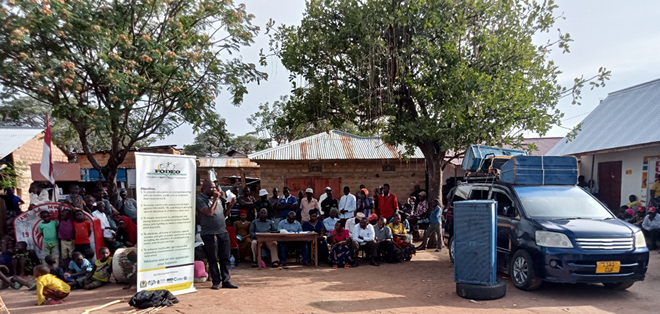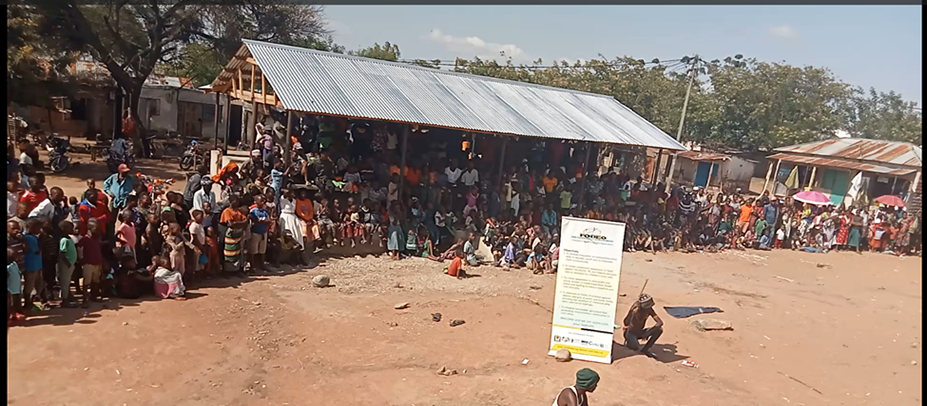Gender Equality Program

The FODEO is doing everything in its power to prevent sexual violence against women and girls by collaborating with a wide range of stakeholders. In Simiyu and Mara regions, sexual violence is currently prevalent as shown in the following graph The FODEO is working to develop strategies to reduce the prevalence of sexual violence in these areas. This includes providing education on gender equality, as well as training and equipping local police officers and community leaders with the necessary skills and knowledge to respond to sexual violence. The FODEO is also working to provide access to support services for victims of sexual violence, including medical, legal and psychological assistance. Additionally, they are advocating for stronger laws and policies to protect victims of sexual violence. They are also working to increase public awareness of this issue, and create safe spaces for victims to share their stories. They are also working to empower victims of sexual violence by providing resources and support to help them heal. They are also working to ensure that victims have access to justice and that perpetrators are held accountable for their actions.
Forms of GBV in Simiyu and Mara Regions
The most common forms of GBV reported in Simiyu and Mara regions include:
- Physical violence: This includes slapping, kicking, beating, and other forms of physical harm.
- Sexual violence: This includes forced sexual intercourse, unwanted sexual contact, and other forms of sexual coercion.
- Emotional violence: This includes verbal abuse, threats, intimidation, and other forms of emotional manipulation.
- Economic violence: This includes denying access to financial resources, controlling employment opportunities, and other forms of economic deprivation.
Factors Contributing to GBV in Simiyu and Mara Regions
Several factors contribute to the high prevalence of GBV in Simiyu and Mara regions, including:
- Harmful traditional practices: Harmful traditional practices, such as early marriage and female genital mutilation (FGM), normalize violence against women and girls.
- Gender inequality: Simiyu and Mara regions are characterized by patriarchal norms that reinforce gender inequality, placing women and girls at a disadvantage.
- Lack of access to justice and support services: Women and girls in these regions often lack access to legal protection, counseling, and other support services, making them more vulnerable to GBV.
- Poverty: Poverty can increase women's dependence on abusive partners and limit their options for escaping violence.
Impact of GBV on Women and Girls in Simiyu and Mara Regions
GBV has a devastating impact on the lives of women and girls in Simiyu and Mara regions, affecting their physical, emotional, and social well-being. Consequences of GBV include:
- Physical injuries and health problems: GBV can lead to physical injuries, chronic pain, and reproductive health complications.
- Psychological trauma: Survivors of GBV often experience post-traumatic stress disorder (PTSD), anxiety, depression, and other mental health issues.
- Social isolation and exclusion: GBV can lead to social isolation, stigma, and exclusion from the community.
- Economic hardship: GBV can disrupt women's education and employment opportunities, perpetuating poverty cycles.
Efforts to Address GBV in Simiyu and Mara Regions
- Community empowerment: Engaging communities to identify and address GBV issues, promoting positive gender norms, and empowering women and girls to speak out against violence.
- Awareness raising: Educating communities about GBV, its forms, signs, and consequences, and promoting a culture of zero tolerance for violence.
- Advocacy for policy change: Working with government officials to strengthen legal frameworks, improve access to justice, and enhance support services for survivors.
- Provision of support services: Providing counseling, legal aid, medical care, and vocational training to survivors of GBV.
Conclusion
GBV remains a critical challenge in Simiyu and Mara regions, demanding concerted efforts to address its root causes, protect women and girls, and promote gender equality. Organizations like FODEO play a crucial role in empowering communities, raising awareness, advocating for change, and supporting survivors, paving the way for a future free from GBV.

